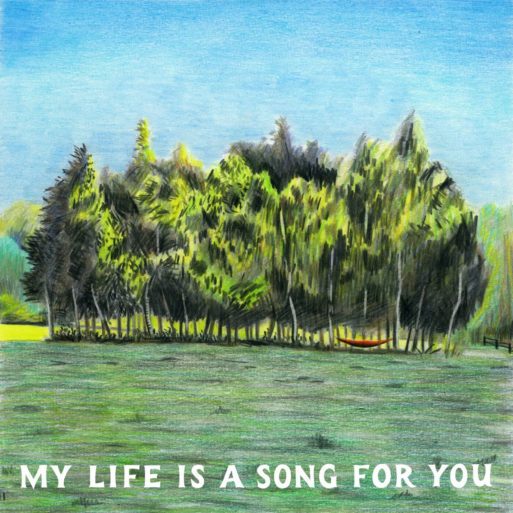
For singer-songwriter Tom Rosenthal, it was only natural to process grief around his father’s death through song. He began writing “My Life Is a Song for You” when it was clear his father was going to be dying soon, and Rosenthal finished it after his father’s death in 2019. In it, he reflects on his deep love for his father and how art can express grief but also the limitations in this.
The main refrain of the song centers on the line, “Oh, my life is a song for you.” As a songwriter, Rosenthal offers up his life as his ultimate song for his father, implying that each day he lives continues to be connected to his father even beyond death. But Rosenthal labels not just life as a song, but also death, writing:
And I’ve just found out that life is a goddamn miracle And the ending is a song
And there are a lifetime of words that I could say
But I’ve got none
The difference between the song of Rosenthal’s life that lives on, miraculously shaped by his father, and the song that is the ending of his father’s life, is not so great, yet remains separated by how limited language is. Rosenthal reflects on the multitude of words he could say about his father and his life and death and their connection, but ultimately he is left with no words. The restrictions of language are reinforced by Rosenthal’s opening lines of the song:
I don’t think I could sing this song to you
Hold my lips and power through
Think about a different day
I don’t think I could do this without tears
Pick a moment fly the years
What can there be left to say?
There are not enough words to summarize the full impact and magnitude of a loved one’s life, or to completely express the grief that we feel in their loss, Rosenthal writes. And even when we do have some words, it can feel impossible to express them face-to-face with our dying loved one. Anyone who has been at the bedside of a beloved dying can relate to this sense that the thought of expressing any of the sum of our love or grief with them easily gets overwhelmed by tears.

The singer-songwriter Tom Rosenthal
Despite the sad subject matter, “My Love Is a Song for You” is not overly sentimental or dramatic, instead relying on a simple but poignant melody. This is a deliberate emotional choice, as Rosenthal even writes, “Oh, you would hate this to be sad.” Even though language is limited, the song goes on and expresses what it can, the grief but also the beauty of life and love.

 “My Life Is a Song for You” by Tom Rosenthal
“My Life Is a Song for You” by Tom Rosenthal


 Our Annual Seven Holiday Gifts for Someone Who Is Grieving, 2024 Edition
Our Annual Seven Holiday Gifts for Someone Who Is Grieving, 2024 Edition
 “Making Mobiles” by Karolina Merska
“Making Mobiles” by Karolina Merska















